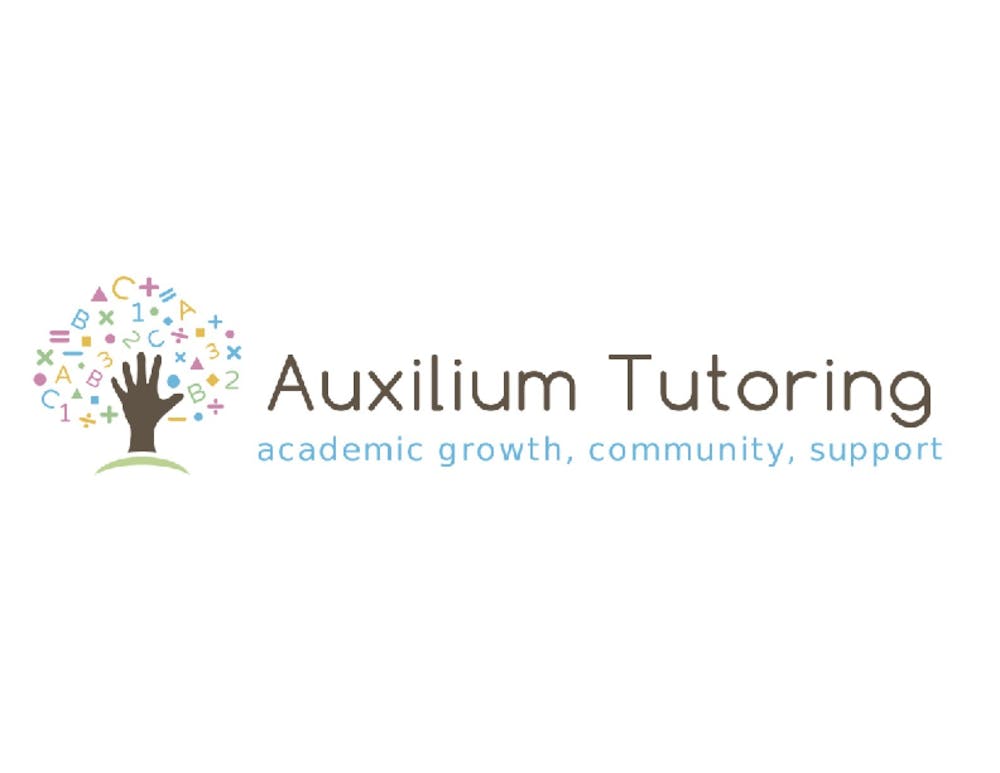
Two Penn students have founded Auxilium Tutoring — a student club that offers free, virtual tutoring services to children in Pennsylvania whose lives have been affected by a disease or injury.
College sophomores Akinkunmi Adio and Alexandra Cordoba started the service and currently manage 25 volunteers to support K-12 students who are either receiving care for a disease themselves or have a loved one receiving care. In addition to providing tutoring for all academic subjects, the group also offers ACT, SAT, and college essay support.
Auxilium has partnered with Cancer Support Community Greater Philadelphia — an organization that works to ensure everyone in the Philadelphia region has access to free emotional support while navigating cancer — to virtually match tutors with K-12 students in need.
Before the onset of the COVID-19 pandemic, Christina Wise, who serves as CSCGP's Children and Teen Program manager, took on the task of organizing tutoring programs for students that the organization supports. However, she said, the pandemic resulted in an increased need for volunteers.
Wise added that initially, the program struggled to fully support every student who wanted tutoring, and she had considered ending the program this year. But once the organization partnered with Auxilium, Wise said that there are now more interested tutors than students in need, and any child who wants tutoring services can now receive them.
“Auxilium has been a lifesaver for my program,” Wise said. “Our kids and their families are so grateful. Everyone tells me how much they love their tutors, and I have yet to hear about a negative experience.”
Adio and Cordoba said that they were inspired to start Auxilium after losing loved ones to cancer. They chose the name “Auxilium” because it is Latin for “support” — emphasizing the organization’s goal.
“The way cancer affects people looks very different across different families, but I’ve seen that it tends to make everything else in life, including education, seem relatively unimportant,” Adio said. “We’re aiming to keep people who are affected on track and help carry some of that burden.”
Wise added that the children Auxilium helps often have "a lot on their plate," and that it can be difficult for them to focus on schoolwork.
The benefits of Auxilium, Adio said, also extend to the tutors — many of whom have plans to pursue careers in healthcare. He said that tutoring “helps build the social skills and awareness to work with children from different backgrounds that they may need in the future.”
College senior Angelica Santos, an Auxilium tutor who is currently applying to medical school, emphasized these benefits.
“The values we practice as tutors will definitely help me down the line as a doctor,” Santos said. “I’m developing patience — learning to be a good listener and to convey information in a way that people of different backgrounds can understand.”
Cordoba also pointed to the fulfillment that she said tutors receive from their work.
“There’s also nothing better than being a tutor and seeing that lightbulb go on in a student’s head,” Cordoba said. “It’s in moments like those that you can learn from those kids and from their resilience and use it to see how you can be a better student in the future.”
As pre-med students who have both taken part in cancer research at Penn, Adio and Cordoba added that their work with Auxilium provides a complement to their research in the lab.
“The research I do is on a broad scale — it’s very theoretical,” Cordoba said. “It’s really awesome to see how my community engagement efforts can make an impact on a personal level and humanize my research.”
Adio and Cordoba have several goals — both short-term and long-term — for the future of Auxilium and think the "overwhelming support" they're receiving from Penn students will help them achieve them.
Later this semester, they hope to start connecting with students in-person through events like the Cancer Support Center’s "Trunk or Treat."
Currently, Auxilium services are only offered in Pennsylvania. By next semester, however, Adio and Cordoba hope to include New Jersey and Delaware. In the longer term, they aspire to turn the group into a non-profit organization and expand their reach across the country, helping to support the start of Auxilium chapters at other universities.
“Ultimately, we hope to get to a point where anyone impacted by cancer, whether that be in Pennsylvania or the US or even globally, can get the support that they need,” Adio said.
The Daily Pennsylvanian is an independent, student-run newspaper. Please consider making a donation to support the coverage that shapes the University. Your generosity ensures a future of strong journalism at Penn.
Donate






